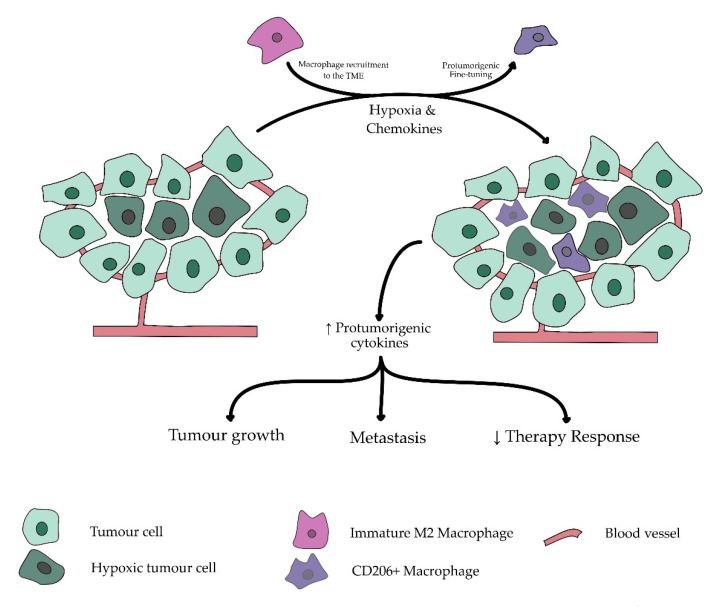Figure 2.
Simplified overview of the role of CD206+ macrophages in hypoxia-induced tumor progression. Tumor growth and insufficient coexpanding blood vessels often result in hypoxic regions in solid malignancies. In these hypoxic regions, a switch is made to anaerobic glycolysis, inducing production of inflammatory metabolic lactates. Consequential increased inflammation attracts macrophages to tumor microenvironment by differentiating circulating monocytes to macrophages and attracting tissue resident macrophages. Under influence of hypoxic environment, these macrophages are further fine-tuned by multiple chemokines developed by tumor cells and its microenvironment to suppress local inflammation and decrease attraction of antitumorigenic immune cells while developing additional protumorigenic cytokines. These protumorigenic effects result in an increased risk for metastasis, decreased therapy response, and further enhance tumor growth.

